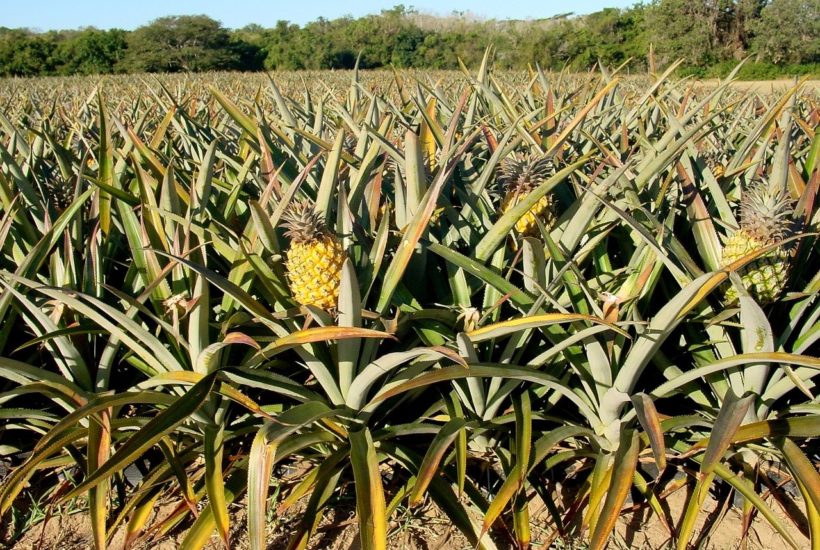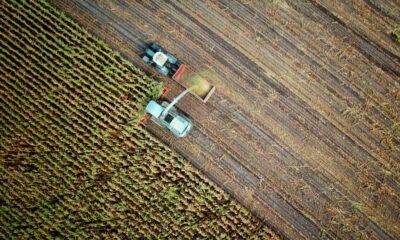Africa
More than 300 loans granted to agricultural and agri-food companies in Burkina
Despite the efforts of the government and its partners in this direction, agri-food companies in Burkina Faso are still experiencing difficulties in their development due to lack of capital. In order to remedy this situation and make the sector more competitive, the Program for Economic Growth in the Agricultural Sector (PCESA) was set up by the Burkina Faso authorities and their partners.

In order to capitalize on the activities of the Agro-Industry Fund (FAI) of the Program for Economic Growth in the Agricultural Sector (PCESA), a workshop was initiated on Tuesday, May 25th, 2021 in Ouagadougou for the benefit of the actors of the implementation of the said program and the technical and financial partners. Its objective is to take stock of the results recorded, to identify shortcomings and prospects for further action. The opening was attended by the technical advisor to the Minister of Agriculture, Hydro-Agricultural Development and Mechanization, Ismaël Nandian Ouédraogo, representing the Minister.
Agriculture occupies a large place in the economy of Burkina Faso. The agricultural sector employs more than 80% of the active population and provides about 61.5% of the monetary income of agricultural households. Hence the need to promote small and medium-sized agricultural and agri-food enterprises to ensure the emergence of an integrated market for industrial products.
Read more about the agricultural sector in Burkina Faso and find the most important economic news from around the world with the Born2Invest mobile app.
Lack of capital affect agri-food companies in Burkina Faso
Despite the efforts of the government and its partners in this direction, these enterprises in Burkina Faso are still experiencing difficulties in their development due to lack of capital. In order to remedy this situation and make the sector more competitive, the Program for Economic Growth in the Agricultural Sector (PCESA) was set up by the Burkina Faso authorities and their partners, notably the Danish Cooperation and the European Union.
Its objective is to contribute to an increase in productivity, added value and agricultural income in order to contribute to national economic growth and poverty reduction. According to the regional coordinator of PCESA, François Guira, in accordance with the strategic objective of the National Economic and Social Development Plan (PNDES) 2016-2020, the aim is to “develop a productive and resilient agro-sylvo-pastoral, wildlife and fisheries sector in a sustainable manner, which is more market-oriented and based on the principles of sustainable development.
To achieve this in Component A of PCESA was created in 2017, the Fund-agribusiness to support agricultural enterprises. Through this fund, the program has provided advisory support services tailored to the demand of agricultural enterprises to strengthen their capacity and competitiveness. Thus, the purpose of this workshop is to capitalize on the results of the fund and to highlight the shortcomings that have made it possible to draw the necessary lessons for the continuation of the program’s actions.
123 green projects financed for an amount of 7.8 billion FCFA
According to the technical adviser to the Minister of Agriculture, Hydro-Agricultural Development and Mechanization, Ismaël Nandian Ouédraogo, representing the Minister, since the beginning of the program, the Kingdom of Denmark has worked with all partners to facilitate access to financing for businesses in partnership with financial institutions (Ecobank, Coris Bank and Sofigib) which have granted 363 loans, 35% of which are managed by women’s businesses, at a total cost of about 21 billion CFA francs Over the same period, 105 SMEs/SMIs benefited from advisory support, 123 green projects were financed for a total cost of about CFAF 7.8 billion.
The technical advisor to the Minister of Agriculture, Hydro-Agricultural Development and Mechanization, Ismaël Nandian Ouédraogo, representing the Minister.
In the opinion of the representative of the head of cooperation of the European Union, in three years the Agro-Industry Fund has helped about fifty agribusinesses in their development through facilitating access to finance and increasing turnover. While reaffirming its willingness to continue this type of initiative in its 2021-2027 programming, the European Union welcomes the key role of facilitators in the support and access to finance.
She hoped that this role would have a stable and solid institutional anchoring for its sustainability. In the same sense, the representative of the Head of Cooperation of the Embassy of Denmark, Dorrit Skaarup Jensen congratulated the actors for the results achieved during the implementation of the program. She also marked the availability of her country to support any initiative in the direction of the development of agricultural enterprises. Started in 2013, the program of economic growth of the agricultural sector (PCESA) ends June 30, 2021.
__
(Featured image by YanceTAY via Pixabay)
DISCLAIMER: This article was written by a third party contributor and does not reflect the opinion of Born2Invest, its management, staff or its associates. Please review our disclaimer for more information.
This article may include forward-looking statements. These forward-looking statements generally are identified by the words “believe,” “project,” “estimate,” “become,” “plan,” “will,” and similar expressions. These forward-looking statements involve known and unknown risks as well as uncertainties, including those discussed in the following cautionary statements and elsewhere in this article and on this site. Although the Company may believe that its expectations are based on reasonable assumptions, the actual results that the Company may achieve may differ materially from any forward-looking statements, which reflect the opinions of the management of the Company only as of the date hereof. Additionally, please make sure to read these important disclosures.
First published in lefaso.net, a third-party contributor translated and adapted the article from the original. In case of discrepancy, the original will prevail.
Although we made reasonable efforts to provide accurate translations, some parts may be incorrect. Born2Invest assumes no responsibility for errors, omissions or ambiguities in the translations provided on this website. Any person or entity relying on translated content does so at their own risk. Born2Invest is not responsible for losses caused by such reliance on the accuracy or reliability of translated information. If you wish to report an error or inaccuracy in the translation, we encourage you to contact us.

-

 Crypto2 weeks ago
Crypto2 weeks agoCaution Prevails as Bitcoin Nears All-Time High
-

 Fintech2 days ago
Fintech2 days agoOKX Integrates PayPal to Simplify Crypto Access Across Europe
-

 Africa1 week ago
Africa1 week agoBridging Africa’s Climate Finance Gap: A Roadmap for Green Transformation
-

 Business1 week ago
Business1 week agoThe TopRanked.io Weekly Digest: What’s Hot in Affiliate Marketing [uMobix Affiliate Program Review]


















